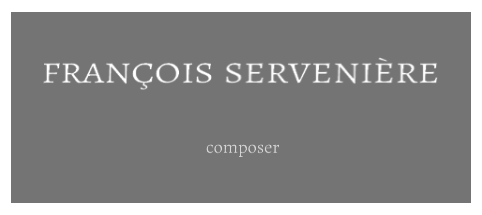
| Valse de Juliette |
5'35" |

@ | REFERENCES | PROFESSIONAL FILES | COMMENTS | MEDIAS | BOOKS | CONCERT | DISCO | FILMS | BLOG | NEWS |
Valse de Juliette
(valtz for clarinet, english horn, piano and symphonic orchestra) 1997-2000
Regularly in the career of a composer, the fate of certain works owes to the first refusal of their orderer. It is the case of this one.
Rejected under its original shape, a song on a Valentine Petit's text A bouche que veux-tu ? for the Roland Petit's ballet Un bon petit diable, this work is going to become Valse de Juliette under its orchestral shape. Extended by a final harmonic march to achieve itself in the paroxysm of the lyric inspiration, it constitutes for her interpreters a work of choice for whom is in love with Vienna of XIXth and melodious Broadway of the end of XXth century. We have me recently object that it would contain Shostakovitches'influences... Indeed ? We can create only being fed by influences. The creators are only filters and the Lavoisier' sentence " Nothing gets lost itself, nothing creates itself, everything is transformed " applies of course to artistic creation.
I heard one day a Nouvelle vague film director screenplayer say that "he got rid of that he felt under influences in his writing"... Poor man, if he had been intellectually honest and had possesses the universal knowledge to assert it, he would have of to deliver blank page.
In Juliette's waltz, the piano is a little bit virtuoso. Violins slide into numerous and bewitching bows pushs. The clarinet and the english horn answer themselves on a classic and simple theme. Brass and percussions burst on a grand final which calms down and makes languid thanks to the last agreements of the harp. Independent work in her creation or in the concert, it's a part now of the opus Queue diable !.
Valse de Juliette
5'35"